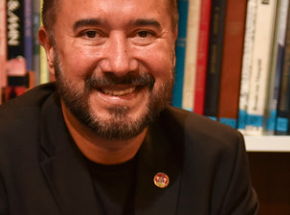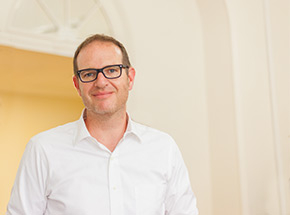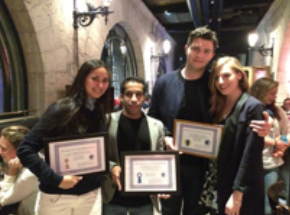- About AUP
- History of AUP
- Mission & Core Values
- Vision and Leadership
- AUP Recognition
- Alumni Success
- Campus Development
- Arts at AUP
- Policies & Guidelines
- Academics
- Undergraduate
- Graduate Programs
- MA in Diplomacy and International Law
- MA in Global Communications
- MSc in Human Rights and Data Science
- MA in International Affairs
- MA in International Affairs, Conflict Resolution, and Civil Society Development
- MSc in International Management
- MSc in Strategic Brand Management
- Find Your Thesis Advisor
- Previous Programs
- Cultural Program
- Faculty
- Summer School
- Research Centers
- The Center for Critical Democracy Studies
- Upcoming Events
- Research Projects
- Fellows’ Publications
- Publishing
- Curriculum
- Community
- Partnerships
- Visiting Scholars
- CCDS Highlights
- Atelier de Théorie Politique – Paris
- Critical Theory 101: Future Directions and New Challenges
- Martti Koskenniemi on “The Law of International Society: A Road not Taken”
- Academic Freedom Symposium
- Tocqueville Colloque 2023
- Violent Turns Conference
- Degenerations of Democracy
- DEMOS21 Inaugural Event
- What Demos for the 21st Century?
- The Paris Centennial Conference
- Justice Stephen Breyer
- Civic Jazz - The Launch of the Center
- Past Events
- FR
- The Center for Writers and Translators
- The George and Irina Schaeffer Center for the Study of Genocide, Human Rights and Conflict Prevention
- The Joy and Edward Frieman Environmental Science Center
- The Center for Media, Communication & Global Change
- The Center for Critical Democracy Studies
- Departments
- Academic Resources
- Academic Affairs
- Academic Calendar
- Academic Resource Center
- Library
- Registrar's Office
- Teaching and Learning Center
- Accessibility & Accommodation Services
- AI@AUP: A Campus-Level Initiative
- Quai D'Orsay Learning Commons
- Paris as Classroom
- ACE
- Admissions
- Student Life
- Campus
- Student Leadership & Involvement
- Paris
- Support Services
- Student Life Help Desk
- Student Accounting Services
- Student Immigration Services
- Student Grievance Procedure
- Diversity and Inclusion
- Health & Well-being
- Digital Student Handbook
- News
- Events
- AUP Giving
- Housing Offer for 2025-2026
- IT Services
- Alumni
- About AUP
- History of AUP
- Mission & Core Values
- Vision and Leadership
- AUP Recognition
- Alumni Success
- Campus Development
- Arts at AUP
- Policies & Guidelines
- Academics
- Undergraduate
- Graduate Programs
- MA in Diplomacy and International Law
- MA in Global Communications
- MSc in Human Rights and Data Science
- MA in International Affairs
- MA in International Affairs, Conflict Resolution, and Civil Society Development
- MSc in International Management
- MSc in Strategic Brand Management
- Find Your Thesis Advisor
- Previous Programs
- Cultural Program
- Faculty
- Summer School
- Research Centers
- The Center for Critical Democracy Studies
- Upcoming Events
- Research Projects
- Fellows’ Publications
- Publishing
- Curriculum
- Community
- Partnerships
- Visiting Scholars
- CCDS Highlights
- Atelier de Théorie Politique – Paris
- Critical Theory 101: Future Directions and New Challenges
- Martti Koskenniemi on “The Law of International Society: A Road not Taken”
- Academic Freedom Symposium
- Tocqueville Colloque 2023
- Violent Turns Conference
- Degenerations of Democracy
- DEMOS21 Inaugural Event
- What Demos for the 21st Century?
- The Paris Centennial Conference
- Justice Stephen Breyer
- Civic Jazz - The Launch of the Center
- Past Events
- FR
- The Center for Writers and Translators
- The George and Irina Schaeffer Center for the Study of Genocide, Human Rights and Conflict Prevention
- The Joy and Edward Frieman Environmental Science Center
- The Center for Media, Communication & Global Change
- The Center for Critical Democracy Studies
- Departments
- Academic Resources
- Academic Affairs
- Academic Calendar
- Academic Resource Center
- Library
- Registrar's Office
- Teaching and Learning Center
- Accessibility & Accommodation Services
- AI@AUP: A Campus-Level Initiative
- Quai D'Orsay Learning Commons
- Paris as Classroom
- ACE
- Admissions
- Student Life
- Campus
- Student Leadership & Involvement
- Paris
- Support Services
- Student Life Help Desk
- Student Accounting Services
- Student Immigration Services
- Student Grievance Procedure
- Diversity and Inclusion
- Health & Well-being
- Digital Student Handbook
- News
- Events
- AUP Giving
- Housing Offer for 2025-2026
- IT Services
- Alumni
Related Links
Alumna
Amanda Skaar ’16
Major in International Business Administration
I was born in Stockholm, Sweden and grew up in a small town called Ski in Norway (Scandinavian cliché alert!). After spending my younger years playing handball, studying in an international high school and traveling whenever I’d saved enough money, I found myself drawn to AUP’s international profile. I loved the idea of studying in a diverse city like Paris, since I knew I’d get bored in any sort of mono-cultural or mono-lingual bubble. I can safely say that I didn’t live a single boring moment in my entire time at AUP.
I was convinced that business was the major for me, but after getting to know the interesting and dedicated professors from various departments—people like James Ward, Ziad Majed, Diane Bonneau, Robert Earhart, and Ali Rahnema—I decided to broaden my scope and explore courses in areas like economics, development finance, sustainability, and Middle Eastern studies. I liked how the flexible program allowed me to customize my academic pursuits, while finding the best path to my professional goals. I was also happy that all students were given the chance to take on roles of responsibility, as many ran for student government, organized research trips, or pursued directed studies with professors who were specialists in their areas of interest.
I now work at the International Chamber of Commerce for the Commission on Corporate Responsibility and Anti-Corruption.
AUP gave me a window onto the rest of the world and showed me that I needed a career where I could work to make global change. It’s also true that once you encounter the mix of the students’ compelling backgrounds and the outstanding professors, you tend to push your ambitions to the next level. I felt constantly encouraged by the professors, who dedicated so much of their time to each of us, while providing us with the academic and cultural competence that we’d need to tackle future challenges. The support from the faculty doesn’t stop at graduation: only last week, I stopped by for a quick chat with one of my business professors, before attending a packed lecture called “Syria and the World”, given by Professor Majed.
I now work at the International Chamber of Commerce for the Commission on Corporate Responsibility and Anti-Corruption, where we collaborate with executives of multinationals, governments, and civil society, in order to try to influence international policy standards. AUP’s directed studies and projects in corporate responsibility and economic development have prepared me well for my job, where I’m gaining invaluable experience in issues related to responsible business conduct. If it weren’t for my international academic background at AUP, I probably wouldn’t have gotten hired.
One final benefit of AUP (and perhaps the most important!): the people. The friends you make here are going to spread out and live in every corner of the world, giving you the opportunity to have a home pretty much everywhere, which makes traveling a whole lot cheaper!
Related
-

Culinary Diplomat Charles Duque
Alumni
Read MoreCulinary Diplomat Charles Duque
Alumni
For Charles Duque, the food industry is a powerful platform to bridge cultures and shape socioeconomic landscapes around the world.
-

Professor Earhart
Faculty
Read MoreProfessor Earhart
Faculty
AUP is such a wonderful environment for cross-cultural exchange.
-

Business Integration Capstone
Featured Course
Read MoreBusiness Integration Capstone
Featured Course
Features a complex international business simulation that integrates material students have covered throughout their studies.
